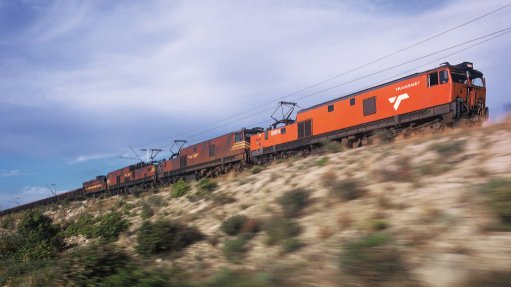Healthcare supply chains both affected by, and affecting, climate change
Climate change is having real-world impacts on demand for healthcare products and on the supply chains for these products, US-based global public health consultancy JSI Health Logistics director Ed Wilson highlighted at the forty-fifth annual SAPICS Conference, in Cape Town, on Monday. And healthcare supply chains are affecting climate change.
The impact of climate change was seen in phenomena including increasing temperatures and rising sea levels, he pointed out. These, and other phenomena, such as droughts, have had an impact on health vectors by, for example, shifting the geographic footprints of various diseases. Thus, Malaria incidence is increasing in highland areas of Africa, Asia and the Americas, and transmission periods for this disease are increasing. And, in other places, increased flooding has resulted in increasing incidences of cholera.
This means that health service requirements have to change as well. And, in turn, healthcare supply chains also have to change, to respond to these climate change-induced events.
But climate change-related events could disrupt supply chains (in general but including for the healthcare sector). Thus, in April last year, Durban harbour had to be closed because of flooding. And, last August, drought caused the level of the River Rhine in Europe to drop so low that the barges sailing on it had to cut their cargo capacity by 25% in order to be able to still navigate the river.
But healthcare product supply chains also have an effect on climate change. The total healthcare sector contributed 4.4% of global total greenhouse gas (GHG) emissions; of that figure, 71% is caused by healthcare supply chains.
GHGs were composed of carbon dioxide (CO2), methane, nitrogen oxides (NOx) and the so-called F-gases (used in refrigeration), explained Genpact USA VP: global supply chain & sustainability leader Deborah Dull. While CO2 is by far the biggest component, in tonnage terms, of total GHG emissions, the others are in fact, on a gram-for-gram basis, worse than CO2 in terms of their climate impacts. Methane is 28 times worse than CO2, NOx is 265 times worse, while the F-gases are 13 000 times worse!
Healthcare supply chains involved GHG emissions in manufacture, transport, storage (which often had to be cool or even refrigerated, so producing F-gases), final distribution and post-use waste (notably, packaging – landfill sites could produce both CO2 and methane, Dull pointed out).
A lot of these activities can already be ‘decoupled’ from GHG production. Using green energy sources to power production, for example. Currently, road freight transport accounts for about 6% of global GHG emissions, which is “not great, but not bad”, but did need to improve (and alternative propulsion options were becoming available).
Thus, there are already a number of ways that can mitigate healthcare supply chain GHG emissions. Wilson recommended that companies in this sector discuss the matter with their partner enterprises, both upstream and downstream, to allow coordinated and complementary GHG emission reduction initiatives.
But there is also the need for players in the healthcare supply chain sector to increase their resilience against climate-induced disruptions. Traditionally, supply chains had been designed on two main foundations: cost and service. Now, risk had to be brought in, as well, on an equal basis. If this could be done, companies would be able to deal with disruptions. Options to increase resilience could include holding greater levels of inventory or maintaining surplus capacity.
These adaptations would not be free, Wilson pointed out. They will have costs. But they will also have benefits. Being climate resilient will make a company a more attractive supplier. It will also make it a better risk for insurers, and perhaps even lead to reduced premiums.
“While investing in resilience takes money, it brings benefits,” affirmed Wilson.
Comments
Press Office
Announcements
What's On
Subscribe to improve your user experience...
Option 1 (equivalent of R125 a month):
Receive a weekly copy of Creamer Media's Engineering News & Mining Weekly magazine
(print copy for those in South Africa and e-magazine for those outside of South Africa)
Receive daily email newsletters
Access to full search results
Access archive of magazine back copies
Access to Projects in Progress
Access to ONE Research Report of your choice in PDF format
Option 2 (equivalent of R375 a month):
All benefits from Option 1
PLUS
Access to Creamer Media's Research Channel Africa for ALL Research Reports, in PDF format, on various industrial and mining sectors
including Electricity; Water; Energy Transition; Hydrogen; Roads, Rail and Ports; Coal; Gold; Platinum; Battery Metals; etc.
Already a subscriber?
Forgotten your password?
Receive weekly copy of Creamer Media's Engineering News & Mining Weekly magazine (print copy for those in South Africa and e-magazine for those outside of South Africa)
➕
Recieve daily email newsletters
➕
Access to full search results
➕
Access archive of magazine back copies
➕
Access to Projects in Progress
➕
Access to ONE Research Report of your choice in PDF format
RESEARCH CHANNEL AFRICA
R4500 (equivalent of R375 a month)
SUBSCRIBEAll benefits from Option 1
➕
Access to Creamer Media's Research Channel Africa for ALL Research Reports on various industrial and mining sectors, in PDF format, including on:
Electricity
➕
Water
➕
Energy Transition
➕
Hydrogen
➕
Roads, Rail and Ports
➕
Coal
➕
Gold
➕
Platinum
➕
Battery Metals
➕
etc.
Receive all benefits from Option 1 or Option 2 delivered to numerous people at your company
➕
Multiple User names and Passwords for simultaneous log-ins
➕
Intranet integration access to all in your organisation


















